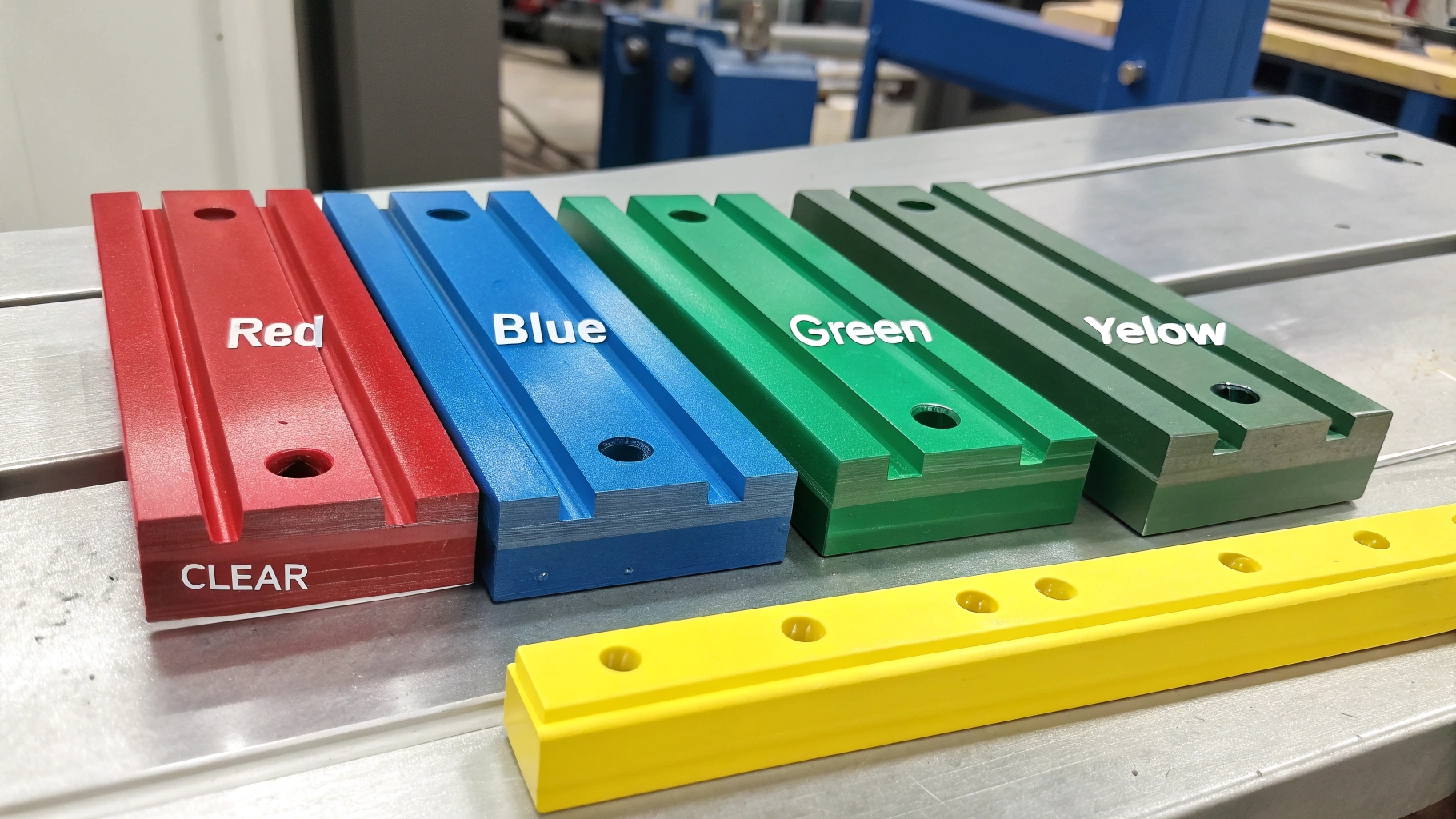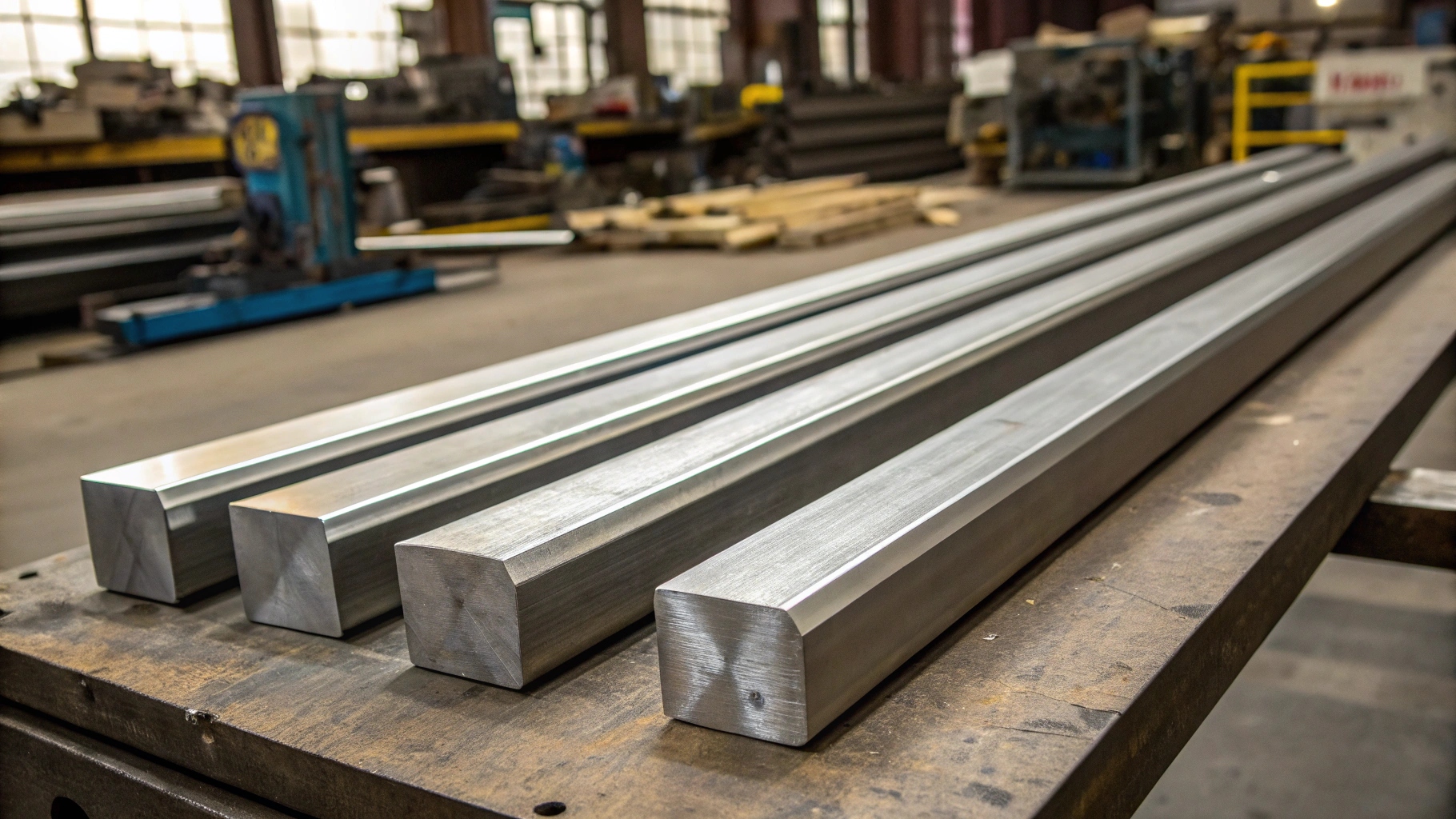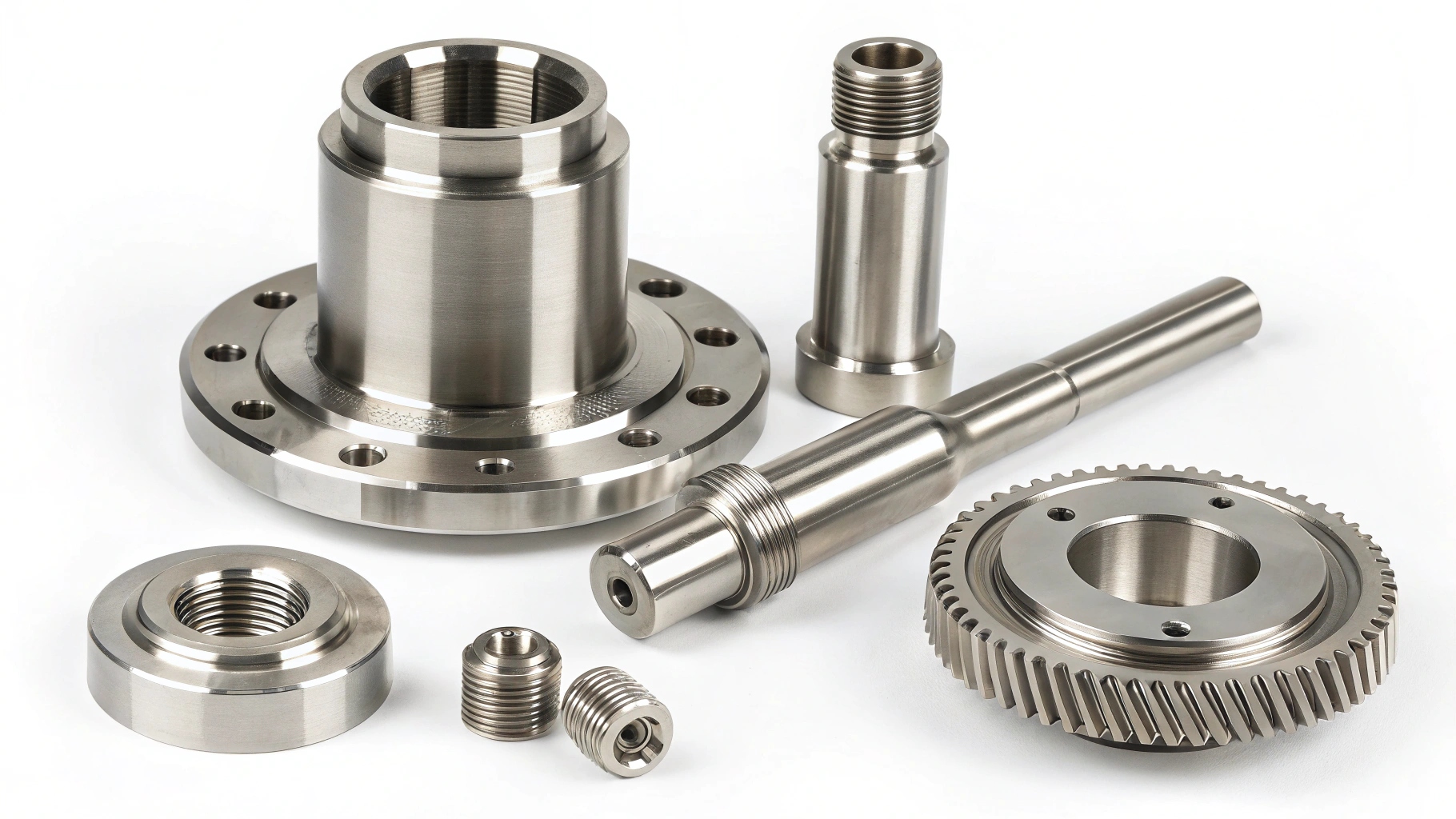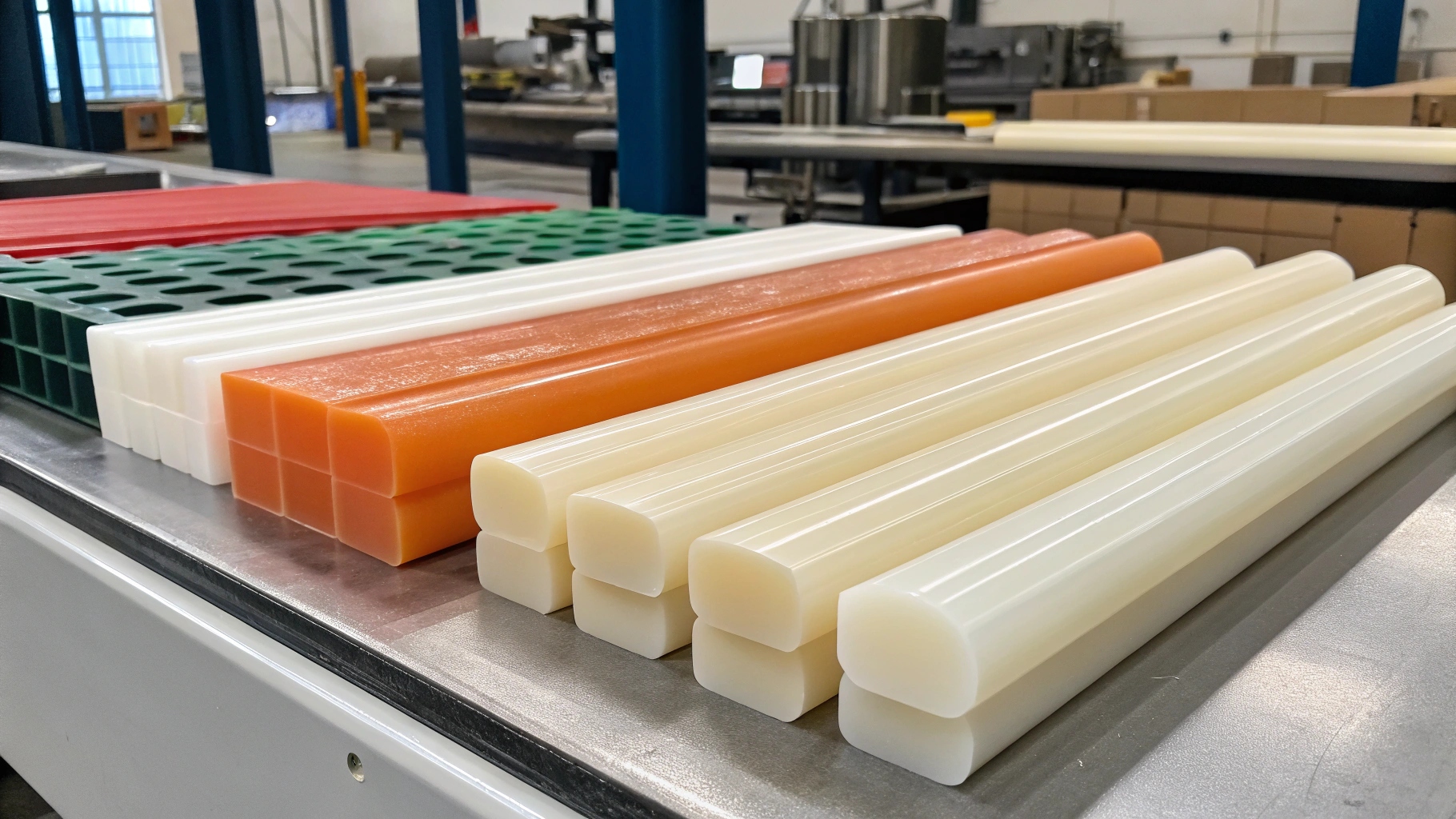
Selecting the right CNC machining material ensures durability, performance, and cost-efficiency. Focus on tensile strength, hardness, and environmental resistance. Materials like aluminum, steel, and PEEK suit different applications, from aerospace to medical devices. Match materials to project demands for the best results.
Find out how material impacts the success of your CNC machining projects and ensure your choice meets application demands.
Why is Material Selection Important?
Material selection in CNC machining1 determines durability, performance, and cost-efficiency. The right material ensures structural integrity and functionality, while the wrong choice leads to increased costs, project delays, and subpar product quality.

The Role of Materials in Product Performance
Materials directly affect product performance. For example, a part that requires high tensile strength might fail if the material isn't chosen correctly.
- Durability: Some materials resist wear and tear better than others.
- Precision: Softer materials are easier to machine, but they may not hold up in demanding conditions.
| Material Type | Common Properties | Typical Applications |
|---|---|---|
| Metals | High strength, durability | Aerospace, automotive |
| Plastics | Lightweight, corrosion-resistant | Medical devices, tools |
The wrong material can mean reduced lifespan or product failure.
Balancing Cost with Quality
A common challenge in CNC machining is balancing cost with quality. High-grade materials can be expensive, but they often lead to fewer production issues.
- Lower-cost materials might lead to higher maintenance or failure rates.
- Premium materials, while expensive, often provide better long-term value.
Finding this balance requires a clear understanding of the project requirements.
What are the Metal Options for CNC Machining?
Metals dominate CNC machining due to their strength, versatility, and reliability. But how do you choose the right one?
The top metals for CNC machining are aluminum, steel, and titanium2:
- Aluminum: Lightweight and corrosion-resistant, ideal for aerospace and automotive.
- Steel: Durable and versatile, commonly used in tools and structural parts.
- Titanium: Strong yet lightweight, suitable for aerospace and medical devices.

Exploring Popular Metal Choices
Some metals excel in specific applications. Let’s dive into their features:
Aluminum: The All-Rounder
Aluminum is lightweight and corrosion-resistant, making it perfect for aerospace and automotive industries.
| Advantages | Applications |
|---|---|
| Lightweight, cost-effective | Aerospace, automotive parts |
Steel: The Workhorse
Steel is versatile and durable, used in everything from tools to structural components.
- Carbon Steel: High strength but prone to rust.
- Stainless Steel: Corrosion-resistant and ideal for medical tools.
Titanium: The Premium Option
Titanium boasts exceptional strength-to-weight ratios, used in aerospac
What are the Plastic Choices for CNC Machining?
ABS, PEEK, and nylon are key plastics in CNC machining, each chosen for specific applications based on durability, heat resistance, and machinability.
- ABS3 is cost-effective and versatile.
- PEEK4 excels in high-performance and heat-intensive environments.
- Nylon5 offers lightweight strength and abrasion resistance.
These plastics provide tailored solutions for diverse industrial needs, ensuring optimal performance and cost efficiency.

Key Plastics for CNC Machining
Let’s break down popular options:
ABS: Affordable and Versatile
ABS is easy to machine and commonly used for prototypes.
| Advantages | Applications |
|---|---|
| Cost-effective, durable | Prototypes, enclosures |
PEEK: High Performance
PEEK is heat-resistant and strong, ideal for medical and aerospace applications.
- High melting point.
- Resists chemical wear.
Nylon: The Flexible Choice
Nylon is tough, lightweight, and abrasion-resistant, making it ideal for gears and bearings.
Advantages of Plastics Over Metals
Plastics shine in areas where metals struggle:
- Lightweight: Reduces product weight.
- Corrosion-Resistant: Ideal for marine applications.
- Cost-Effective: Perfect for short production runs.
However, plastics may not perform well in high-stress environments.
What Factors Should You Consider When Selecting CNC Machining Materials?
Key factors include strength, environmental resistance, and machining compatibility. The right material ensures durability, cost-efficiency, and optimal performance for CNC machining projects.
Mechanical Properties to Evaluate
Each material has unique properties that affect performance:
Tensile Strength
Tensile strength determines how much force a material can withstand.
- Metals like steel offer high tensile strength.
- Plastics like ABS are suitable for low-stress applications.
Hardness
Harder materials resist wear but may be challenging to machine.
| Material | Hardness Level | Machinability |
|---|---|---|
| Aluminum | Moderate | High |
| Titanium | High | Moderate |
Environmental Resistance
Materials must endure specific environmental conditions.
- Corrosion Resistance: Vital for marine or chemical exposure.
- Temperature Tolerance: Essential for aerospace or industrial applications.
Choosing the right material ensures products perform as intended under various conditions.
How to Match CNC Machining Materials to Application Needs?
Matching CNC machining materials to application needs involves considering load requirements, environmental conditions, and performance demands. The right material ensures durability, functionality, and cost-efficiency, tailored to specific project goals.
Aligning Properties with Application Demands
Each application demands unique material properties:
Aerospace Industry
- Lightweight materials6 like aluminum and titanium reduce fuel consumption.
- High-temperature tolerance7 is a must for engine components.
Medical Devices
- Biocompatibility8 is crucial. Titanium and PEEK are common choices.
- Sterility and ease of cleaning are additional considerations.
Balancing Trade-Offs
Every material has strengths and weaknesses. For example:
- Metals are strong but may corrode.
- Plastics resist corrosion but may lack mechanical strength.
Understanding trade-offs helps achieve the best balance between cost and performance.
Conclusion
Selecting the right material for CNC machining ensures durability, performance, and cost efficiency. By understanding material properties and application needs, you can make informed decisions for your projects.
-
Understanding material selection in CNC machining can significantly impact product durability, performance, and cost-efficiency, making it crucial for project success. ↩
-
Exploring the differences between aluminum, steel, and titanium helps in selecting the right material for specific CNC machining applications, ensuring optimal performance and cost-effectiveness. ↩
-
Explore how ABS's cost-effectiveness and versatility make it a top choice for prototypes and enclosures in CNC machining. ↩
-
Discover PEEK's exceptional heat resistance and strength, making it ideal for demanding sectors like aerospace and medical. ↩
-
Learn about nylon's lightweight strength and abrasion resistance, perfect for creating durable gears and bearings. ↩
-
Explore the latest advancements in lightweight materials that can significantly reduce fuel consumption in aerospace applications. ↩
-
Learn about materials that can withstand extreme temperatures, crucial for the reliability of aerospace engine components. ↩
-
Discover the critical role of biocompatibility in ensuring the safety and effectiveness of medical devices. ↩

